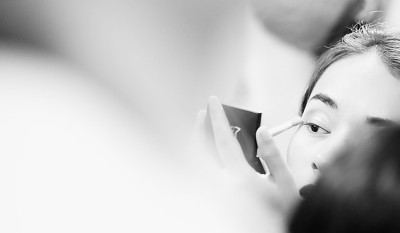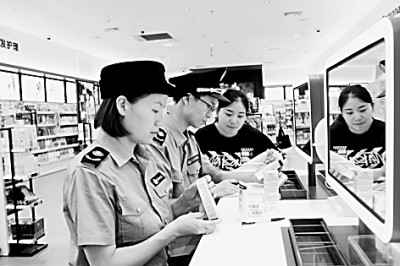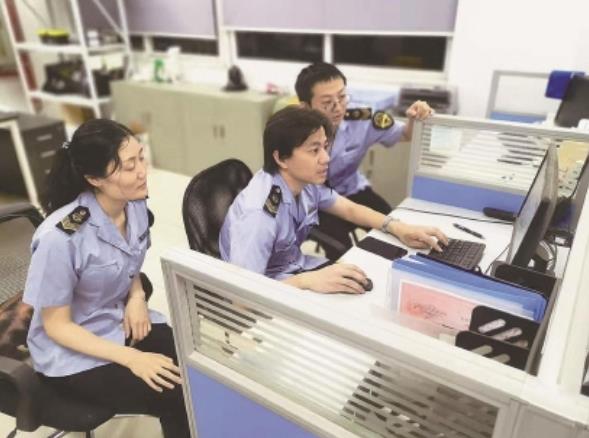
Xinhua news agency

The Market Supervision Bureau of Yushui District, Xinyu City, Jiangxi Province carried out special supervision and inspection on the quality and safety of cosmetics. Photo by Liao Haijin/Bright Picture
[Talking about health]
Love of beauty is nature, and health and safety are the premise. Recently, the basic laws and regulations of China’s cosmetics industry have ushered in major changes in the past 30 years — — The Regulations on Cosmetic Supervision and Management was officially issued by the State Council, and the Regulations on Cosmetic Hygiene Supervision, which has been implemented for 30 years, withdrew from the historical stage.
In November 1989, China issued the Regulations on Hygienic Supervision of Cosmetics, which came into effect on January 1, 1990. Over the past 30 years, China has developed into the second largest cosmetics market in the world, with more than 5,200 cosmetics manufacturers. However, the rapid development has also brought some problems, such as illegal addition of banned substances, fake and inferior products, and safety of raw materials, which have hidden health concerns under the beautiful appearance. What changes will the new regulations, which will come into effect on January 1, 2021, bring to the cosmetics industry? How to make our beautiful career healthier? The public is full of expectations.
As a chemical industrial product that directly acts on human body, cosmetics bring us beauty, and at the same time, health and safety must be guaranteed. Only when you have health can you talk about beauty. However, some unhealthy phenomena in China’s cosmetics industry have brought hidden dangers to the health of beauty lovers — —
Illegal addition of prohibited substances that may be harmful to health, unauthorized preparation of cosmetics by beauty salons, fake and inferior products counterfeit well-known brand products, false publicity and even claims of medical functions, and emphasis on packaging and publicity rather than technological innovation … …
We want to be beautiful and healthy and safe. A few days ago, the "Regulations on the Supervision and Administration of Cosmetics", which received much attention, was officially promulgated. This also means that the "Regulations on Hygienic Supervision of Cosmetics", which has been implemented for 30 years, will end its historical mission. The new regulations not only adapt to the new situation, but also solve old problems. Among them, there are many highlights worthy of attention.
Highlight 1: Intensify the crackdown on "grey areas", and illegally adding prohibited substances can be fined up to 30 times the value of the goods.
In recent years, with the rapid development of China’s cosmetics industry, illegal addition and other illegal phenomena are more prominent. In the first half of this year, National Medical Products Administration issued a number of notices about problematic cosmetics. Most of these notified cosmetics are counterfeit or detected prohibited substances. According to media reports, some inferior cosmetics counterfeit well-known brands, or improve short-term effects by adding banned substances such as hormones, which have become "hidden rules" and "gray areas" of the industry.
In 2018, Taizhou City, Jiangsu Province investigated and dealt with a case of illegal addition of prohibited ingredients to extra-large cosmetics. Illegal people buy cosmetics raw materials with illegal banned ingredients from multiple channels, or add a large number of banned ingredients such as betamethasone, mercuric chloride, metronidazole and chloramphenicol to facial masks, whitening and acne-removing cosmetics, and sell them to thousands of beauty salons, cosmetics stores and tens of thousands of consumers in more than 20 provinces across the country through semi-finished products, branded products and finished products. Local regulators said that the case profoundly exposed the long-standing "hidden rules" of the cosmetics industry.
Compared with the old regulations 30 years ago, the new regulations have intensified the crackdown on various illegal acts and enhanced the deterrent power of the law. Yang Zhanxin, deputy director of the Comprehensive Planning Department of Hebei Provincial Market Supervision Administration, noticed that there are 18 articles on punishment for illegal acts in the new regulations, which is twice as many as the old regulations; The content of the law is also more detailed, covering all kinds of illegal situations.
"The new regulations combine the law enforcement practice in the past 30 years and the outstanding problems in the current cosmetics market. Anyone who sets prohibitive provisions and compulsory provisions for producers and operators has set legal responsibilities in the legal responsibility part." Yang Zhanxin pointed out.
The new regulations comprehensively use punishment measures such as confiscation, fine, order to stop production and business, revocation of licenses, and market and industry bans to crack down on illegal activities. Take fines as an example. In the past, the base of fines was "illegal income", but now it is adjusted to "value of goods", and the amount of fines has been greatly increased. For example, in the case of illegal activities such as engaging in cosmetics production without permission, from the old regulations, "a fine of 3 to 5 times the illegal income can be imposed" to "a fine of more than 15 times and less than 30 times the value of the goods".
Moreover, the provisions on "punishing people" for illegal acts have been added. The legal representative or principal responsible person, the directly responsible person in charge and other directly responsible personnel of a serious illegal unit shall not only be fined, but also be prohibited from engaging in cosmetics production and business activities for life.
For example, in cracking down on counterfeiting and illegal addition, the new regulations make a series of new provisions: cosmetics producers and operators are required to establish and implement a record system for incoming goods to ensure the traceability of products; For illegal acts such as illegally adding substances that may endanger human health, a maximum fine of 30 times the value of the goods can be imposed, and even cosmetics production and business activities can be banned for life. The new regulations also provide clear penalties for behaviors such as making cosmetics and changing the use period of cosmetics without authorization by beauty salons and hotels that were not clearly defined in the old regulations.
In addition, the new regulations also emphasize that the regulatory authorities can take emergency control measures to order the suspension of production and operation and issue safety warning information for cosmetics that cause human injury or have evidence that may endanger human health.
"This gives the so-called ‘ Grey zone ’ It sounded the alarm. " Professor Dong Yinmao of Beijing Technology and Business University said in an interview with the media.
Highlight 2: "Let good steel be used on the blade" to ensure the safety of cosmetic raw materials more scientifically.
According to the new regulations, cosmetics refer to daily chemical industrial products that are applied to human surfaces such as skin, hair, nails and lips by rubbing, spraying or other similar methods for cleaning, protecting, beautifying and modifying. As a chemical industrial product directly acting on human body, safety is the bottom line of cosmetics. In addition to illegally adding prohibited substances, if there are problems with the raw materials of cosmetics themselves, it will also bring hidden dangers to the health and safety of consumers. Safety of raw materials is an important prerequisite for the safety of cosmetics.
"Generally speaking, cosmetics are a mixture made of a variety of raw materials according to the formula ratio, and most of this preparation is a physical mixing process, and few chemical reactions are involved. Therefore, the safety and function of raw materials directly affect the safety and performance of finished cosmetics. " Xu Liang, member of National Medical Products Administration Cosmetic Standards Expert Committee, explained.
Compared with the old regulations, an important change in the new regulations is to emphasize risk management, that is, to implement different levels of classified management according to the level of security risks. Preservatives, sunscreens, colorants, hair dyes, freckle-removing and whitening agents and other high-risk new raw materials must be registered with the drug supervision and administration department of the State Council before they can be used. Other new raw materials only need to be put on record.
Moreover, there is also a "safety assessment period" for new raw materials — — Within 3 years after the new raw materials for cosmetics are put into use, the registrant and the record holder of the new raw materials shall report the use and safety of the new raw materials to the drug supervision and administration department of the State Council every year. If there are security problems, the registration will be cancelled or the record will be cancelled. No safety problems occurred after the expiration of 3 years, and it was included in the list of used cosmetic raw materials formulated by the drug supervision and administration department of the State Council.
The new regulations also stipulate that, according to the development of scientific research, if there is a change in understanding of the safety of cosmetics and cosmetic raw materials, or there is evidence that cosmetics and cosmetic raw materials may be defective, the regulatory authorities may order the registrants and filers of cosmetics or new cosmetic raw materials to carry out safety re-evaluation or directly organize safety re-evaluation. Re-evaluation results show that cosmetics or cosmetic raw materials can not guarantee safety, the registration or filing shall be cancelled, and the regulatory authorities shall include them in the list of raw materials prohibited from being used in cosmetics production and announce them to the public.
It is worth noting that the new regulations require the establishment of a cosmetic risk monitoring and evaluation system to monitor and evaluate the risk factors affecting the quality and safety of cosmetics. Song Hualin, a professor at Nankai University Law School, believes that through risk monitoring and evaluation, judging the risks contained in cosmetic raw materials, products, production and operation processes and labels, we can have an overall grasp of the safety situation of cosmetics and understand the main problems existing in the safety and quality of cosmetics.
Knowing where there are problems can better carry out targeted supervision. The new regulations point out that risk monitoring provides a scientific basis for formulating risk control measures and standards for cosmetic quality and safety and carrying out cosmetic sampling inspection. Moreover, the national cosmetic safety risk monitoring plan is implemented, and the varieties, projects and regions to be monitored are clearly defined. Song Hualin believes that this can "let good steel be used in the cutting edge" and allocate risk supervision resources more scientifically and reasonably.
Highlight 3: Encourage the technical innovation of cosmetics, and give the products with new functions a broad space for development.
In fact, classified management is not only conducive to safety supervision, but also conducive to the innovation of cosmetic technology.
The domestic cosmetics industry has been criticized for its lack of technological innovation in product efficacy. Without innovation, we can only make a fuss about packaging such as advertising. In Xu Liang’s view, many cosmetics companies don’t work hard on technology, but attract consumers by "arranging stories".
Xu Liang analyzed that according to the composition characteristics of cosmetics, the innovation of cosmetics mainly depends on the innovation of raw materials, especially the development and innovation of functional raw materials and raw materials that contribute to the improvement of cosmetic dosage forms. However, in the old regulations, new cosmetic raw materials were registered and managed as a whole, and the evaluation scale was not refined in combination with the characteristics of cosmetic raw materials. Enterprises declared a new raw material, "even if it is only a polymer with no skin penetration ability or edible common vegetable oil, it often needs to supplement the information many times, resulting in the average time for the declaration of new raw materials being several years".
"On the one hand, the enthusiasm of enterprises to declare new raw materials is affected. On the other hand, new raw materials that have been proved to have good performance and are widely used in the world cannot be used in Chinese cosmetics, which has also increased the gap between Chinese cosmetics and foreign companies in technology and innovation to some extent." He said that the cosmetics update cycle is fast, which requires enterprises to continuously introduce new products to the market.
According to the new regulations, ordinary new raw materials for cosmetics are put on record, which simplifies the use procedure. Dong Yinmao believes that the new regulations have changed the long-standing difficulty in approving new raw materials. The establishment of the new raw material filing mode has opened up a brand-new mode for enterprises to innovate and develop new raw materials, and given a broad space for innovation and development of products with new functions.
The new regulations encourage the innovation of cosmetics enterprises not only in the management of new raw materials, but also clearly put forward that the state encourages and supports the research and innovation of cosmetics; Encourage and support the use of modern technology, combined with China’s traditional advantageous projects and characteristic plant resources to research and develop cosmetics.
Xu Liang believes that this is good for the healthy development of the whole industry, because "one has no technical strength and only passed ‘ Arrange a story ’ Companies that attract consumers will not do it for a long time. " Dong Yinmao also believes that the new regulations "make enterprises committed to the research of cosmetic raw materials, production technology and product innovation see hope".
Highlight 4: Cosmetic efficacy claims must have scientific basis and accept social supervision.
Innovation is not enough, and propaganda is coming together. It is not uncommon to make false and exaggerated propaganda on the efficacy of cosmetics and mislead consumers. Some cosmetic practitioners even have the idea of drugs, promoting cosmetics as magical products with medical effects.
According to media reports, in January this year, on the train from Rizhao, Shandong Province to Jinan, someone sold a cosmetic called "Baicao Cream" as a medicine to passengers. The salesman claimed that the product can relax muscles and promote blood circulation, relieve pain, and also treat skin diseases, mosquito bites and other symptoms, describing this cosmetic as magical.
A few years ago, the concept of "cosmeceuticals" was very popular in China. Cosmetics are next to drugs, as if the efficacy of the products is more guaranteed. However, in January 2019, National Medical Products Administration clearly pointed out that it is illegal to claim the concepts of "cosmeceuticals" such as "cosmeceuticals" and "medical skin care products" for products registered or filed in the name of cosmetics.
The new regulations issued this time further clarify the false propaganda behaviors such as claiming medical functions. The new regulations clearly point out that cosmetics labels and advertisements must not express or imply that products have medical functions, and must not contain false or misleading contents.
Moreover, the new regulations stipulate that the efficacy claims of cosmetics should have sufficient scientific basis, and the literature and research data on which the efficacy claims are based should be published and accepted by the society. In other words, whether cosmetics are effective and why they are effective must rely on science.
(Reporter Chen Haibo)






